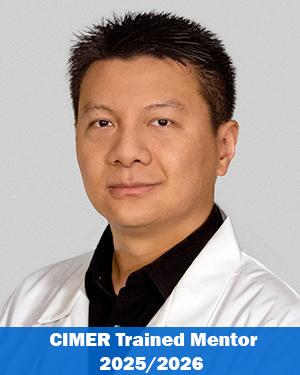Research News
02/26/2024
New Cleveland Clinic research yields scientific breakthrough on virus-induced cancer
Kaposi’s sarcoma-associated herpesvirus manipulates our cells to change the way they make nucleotides and metabolize glucose, paving the way for tumors to form.

In a significant breakthrough, Cleveland Clinic researchers have identified a process Kaposi's sarcoma-associated herpesvirus (KSHV), also known as human herpesvirus 8, uses to cause cancer. Blocking this mechanism with FDA-approved breast cancer drugs reduced the replication of KSHV, blocked lymphoma progression and shrunk existing tumors in preclinical models.
The Nature Communications study, led by Jun Zhao, PhD, Florida Research & Innovation Center, reveals that KSHV manipulates two human enzymes called CDK6 and CAD to reshape the way our cells process glucose and produce new nucleotides, the building blocks of DNA and RNA. The changes to how infected cells grow lead to a higher risk of tumors forming and play a crucial role in causing cancer.
The findings have far-reaching implications: viruses cause between 10% to 20% of cancers worldwide, a number that is constantly increasing as new discoveries are made.
"Treating virus-induced cancers with normal cancer therapies can help shrink tumors that are already there, but it doesn't fix the underlying problem of the virus," explains Dr. Zhao. "Understanding how pathogens transform a normal cell into a tumor cell uncovers exploitable vulnerabilities and allows us to make drugs that can effectively treat virus-associated malignancies."
Like other herpesviruses, KSHV often has no symptoms and never leaves our bodies after the initial infection. It remains dormant, suppressed by our immune systems. The virus truly becomes dangerous when our immune systems are compromised. In older individuals, individuals with HIV/AIDS, and individuals receiving organ transplants, the KSHV virus reactivates and causes devastating cancers in these already vulnerable individuals.
KSHV is linked to Kaposi's sarcoma, a cancer which starts in the skin but manifests tumors and lesions in the oral cavity and visceral organs. The virus is also linked with primary effusion lymphoma, one of the most dangerous forms of lymphoma, and noncancerous overgrowth disorders like multicentric Castleman disease. KSHV-induced cancers are fast-acting, aggressive and incredibly difficult to treat.
An estimated 10% of people in North America and Northern Europe have KSHV, but this ranges throughout the globe. More than 50% of individuals in parts of Northen Africa are estimated to have KSHV. Experts estimate these rates are higher, as KSHV often goes undiagnosed because of lack of symptoms. Researchers can apply knowledge obtained through studying KSHV to other viruses that might use the same processes to cause cancer.
Blocking metabolic reprogramming behind virus-induced cancer
Dr. Zhao turned to our own cells' metabolic processes to find the virus's vulnerabilities. He teamed up with Michaela Gack, PhD, Scientific Director of the Florida Research & Innovation Center.
Cells that replicate quickly like cancer cells usually need to reprogram cellular metabolism to support their rapid and uncontrolled growth. Meanwhile, most viruses cannot produce energy or necessary molecules on their own, so they rely on our own cells to do the work for them. The team found that KSHV hijacks a host protein called CDK6 and forces it to modify a human metabolic enzyme called CAD. The modification, they found, causes the infected cells to increase nucleotide production and glucose metabolism. Increasing these cellular processes gives the virus an "all-you-can-eat buffet" of metabolites to replicate more quickly and promotes tumor formation.
CDK6-inhibiting drugs are commonly used for specific breast cancer treatments. The research team used an FDA-approved drug called Palbociclib and a compound targeting CAD in preclinical primary effusion lymphoma models. They saw significant decreases in tumor size and increases in cancer survival rates: most tumors virtually disappeared after about a month of treatment, and the remaining tumors had decreased in size by ~80%. Perhaps most importantly, survival increased to 100% for selected lymphoma cell lines.
Dr. Zhao and his team are working to better understand the connections among KSHV, the CDK6/CAD pathway, and cancer formation. With the knowledge they obtain, they plan to refine their experimental drug cocktails for clinical trials.
"Cellular metabolism could be hijacked by both viruses and cancers for pathogenesis," Dr. Zhao says. "By investigating these metabolic rewiring mechanisms, we aim to find the Achilles' heel of cancer-causing viruses and non-viral cancers. I'm excited to see what the future of this work holds."
Featured Experts
News Category
Related News
Research areas
Want To Support Ground-Breaking Research at Cleveland Clinic?
Discover how you can help Cleveland Clinic save lives and continue to lead the transformation of healthcare.
Give to Cleveland Clinic
